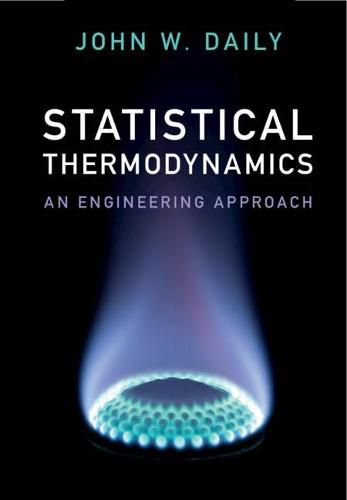Readings Newsletter
Become a Readings Member to make your shopping experience even easier.
Sign in or sign up for free!
You’re not far away from qualifying for FREE standard shipping within Australia
You’ve qualified for FREE standard shipping within Australia
The cart is loading…






Statistical Thermodynamics: An Engineering Approach covers in a practical, readily understandable manner the underlying meaning of entropy, temperature and other thermodynamic concepts, the foundations of quantum mechanics, and the physical basis of gas, liquid and solid phase properties. It presents simply the relationship between macroscopic and microscopic thermodynamics. In addition, the molecular basis of transport phenomena and chemical kinetics are explored, as are basic concepts in spectroscopy. Modern computational tools for solving thermodynamic problems are explored, and the student is assured that he or she will gain knowledge of practical usefulness. This essential text is suitable for mechanical or aerospace engineering graduate students who have a strong background in engineering thermodynamics, those entering advanced fields such as combustion, high temperature gas dynamics, environmental sciences, or materials processing, and those who wish to build a background for understanding advanced experimental diagnostic techniques in these or similar fields.
$9.00 standard shipping within Australia
FREE standard shipping within Australia for orders over $100.00
Express & International shipping calculated at checkout
Statistical Thermodynamics: An Engineering Approach covers in a practical, readily understandable manner the underlying meaning of entropy, temperature and other thermodynamic concepts, the foundations of quantum mechanics, and the physical basis of gas, liquid and solid phase properties. It presents simply the relationship between macroscopic and microscopic thermodynamics. In addition, the molecular basis of transport phenomena and chemical kinetics are explored, as are basic concepts in spectroscopy. Modern computational tools for solving thermodynamic problems are explored, and the student is assured that he or she will gain knowledge of practical usefulness. This essential text is suitable for mechanical or aerospace engineering graduate students who have a strong background in engineering thermodynamics, those entering advanced fields such as combustion, high temperature gas dynamics, environmental sciences, or materials processing, and those who wish to build a background for understanding advanced experimental diagnostic techniques in these or similar fields.